Septoplasty in South Africa
Search and Compare the Best Clinics and Doctors at the Lowest Prices for Septoplasty in South Africa

Find the best clinics for Septoplasty in South Africa
No pricing info available
Romania offers the best prices Worldwide
Price: $ 404
From 18 verified reviews
Juliettash Stadler, 05 May 2020
My Son was admitted with a very rare autoimmune illness in April this year. The care he was given was superb Prof Dheda, Prof Louw and their team of specialists covered every possibility , diagnosed efficiently and treated effectively. There was time taken to explain everything. The Hospital Matron made allowances for me to spend as much as possible time with my son and also allowed for frequent visits from close family. Mr Daniel Mathew the Hospital General manager is very approachable and interested . The staff was friendly and helpful. Basically every one from reception through admin to ICU was friendly and helpful. I Highly recommend this hospital
From 72 verified reviews
Charlotte Sorour, 13 March 2020
Parking is a huge problem.On a positive note it is a great hospital with great specialists and doctor's hence why it is so busy. Well worth driving around a bit looking for parking knowing your loved one's are in good hands. My mind at ease. My husband is well looked after. Thank you Linksfield staff :)
From 36 verified reviews
Kim Adams, 30 March 2020
Overall I had a good experience.
From 38 verified reviews
Nompumelelo Madliwa, 19 April 2020
I had such a wonderful experience there with Dr Thomas, I had a skin drafting done it was such a smooth process I am healing very well and had a great stay there, Thank you so much
Dr Pedro Monteiro - ENT and Skull Base Surgeon, located in Syfred Douglas St, Cape Town, South Africa offers patients Septoplasty procedures among its total of 21 available procedures, across 1 different specialties. Currently, there's no pricing information for Septoplasty procedures at Dr Pedro Monteiro - ENT and Skull Base Surgeon, as all prices are available on request only. All procedures and treatments are undertaken by just a small team of specialists, with 2 in total at the Hospital, and they have multiple recognized accreditations, including: HPCSA - Health Professions Council of South AfricaRCSEd - The Royal College of Surgeons of EdinburghRCSEd - The Royal College of Surgeons of EdinburghFCS(SA) - Fellowship of the College of Surgeons of South Africa
Dr Brian Wolfowitz, located in Council St, Johannesburg, South Africa offers patients Septoplasty procedures among its total of 5 available procedures, across 2 different specialties. Currently, there's no pricing information for Septoplasty procedures at Dr Brian Wolfowitz, as all prices are available on request only. All procedures and treatments are undertaken by the lead specialist at the Hospital, and they have multiple recognized accreditations, including: AAO - American Academy of Otolaryngology-Head and Neck SurgeryAAFPRS - American Academy of Facial Plastic and Reconstructive Surgery
- Home
- South Africa
Compare Before & After Photos of _procedure_photos.phpSeptoplasty
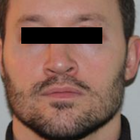
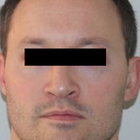
Front view
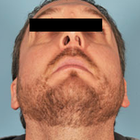
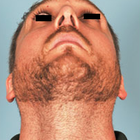
Front view
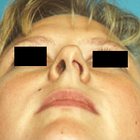
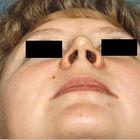
Front view
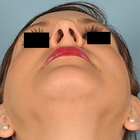
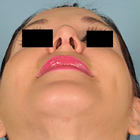
Front view
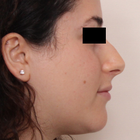
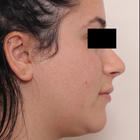
Full-side view
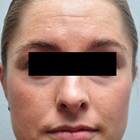
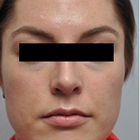
Front view
WHY US?
At Medijump, we're making medical easy. You can search, compare, discuss, and book your medical all in one place. We open the door to the best medical providers worldwide, saving you time and energy along the way, and it's all for FREE, no hidden fees, and no price markups guaranteed. So what are you waiting for?

Free

Best Price

Widest Selection

Risk-Free
What you need to know about Septoplasty in South Africa
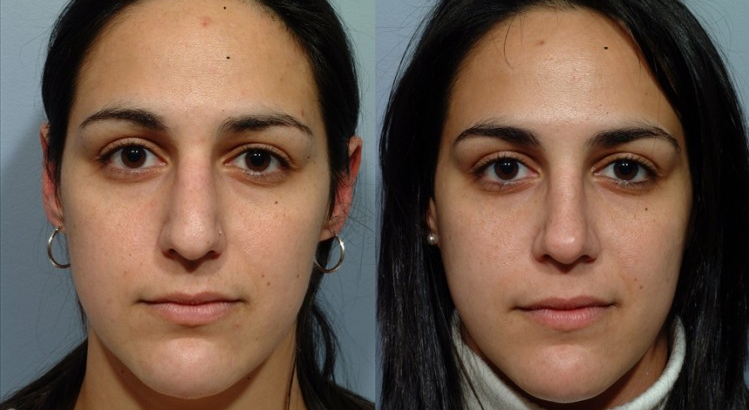
A septum is a bone and cartilage that separates the nasal cavity of the nose. When your nasal septum is off-center, crooked, or moved to one side of your nose, it is a condition known as a deviated septum and can make breathing difficult. To correct this condition, you may need to undergo Septoplasty, where your septum will be straightened to allow better airflow through your nose. This surgery is the only way to fix a deviated septum. However, septoplasty may also be performed to treat long-term sinusitis, remove nasal polyps, or treat other conditions that block the nasal airways. Sometimes, surgeons also recommend this surgery to stop recurrent nosebleeds and facial pains. For conditions other than deviated septum, surgeons often only recommend septoplasty after ruling out other treatments.
What does a Septoplasty Procedure Involve?
A deviated septum is common, but when the condition is severe, it can block one side of your nose and reduce airflow. It can also contribute to crusting or bleeding. If you experience difficulty breathing through your nose that significantly affects your life, you may want to consider septoplasty. Before the surgery, your doctor will review the details of the surgery and ask you to complete some routine tests, such as a blood test, electrical heart tracing, or X-ray. Be sure to tell your doctor if you have any possible allergies. To prepare for the procedure, you may need to stop taking certain medications at least two weeks before the surgery because they can increase your risk of excessive bleeding and the medications include aspirin, ibuprofen, and other blood-thinners.
Septoplasty can be carried out under local anesthesia or general anesthesia. If you have the surgery under local anesthesia, you should not eat or drink anything after midnight the night before the procedure. Not eating and drinking will prevent you from vomiting and choking if the anesthesia nauseates you during surgery. Your surgeon will start the surgery by making an incision on one side of your nose to access the septum. They will then lift the mucosa lining that covers the cartilage and bone. Next, they will reshape the cartilage and bone to move the deviated septum to the correct position. Extra pieces of bone or cartilage that make barriers will be removed. Then, they will reposition the mucous membrane. You may need stitches to hold the septum and membrane in place. Soft silicone splints are sometimes inserted inside the nostrils to support the septum. The whole procedure takes between 30 to 90 minutes to complete.
How Long Should I Stay in South Africa for a Septoplasty Procedure?
Septoplasty is an outpatient procedure, which means you will likely go home on the same day of the surgery after the anesthesia has worn off unless major complications arise. However, you should stay in the South Africa for 3-4 days for the initial recovery and follow-up checkups. If your surgeon places splints in the nose, they will be removed within seven days. You may return home when your surgeon allows you as long as there is no complication.
What's the Recovery Time for Septoplasty Procedures in South Africa?
You may feel drowsy for a few hours following the surgery and you may also feel pain. However, your surgeon will prescribe medication to help with the pain. Some congestion and bleeding can occur after you are discharged from the hospital as your body recovers, but these symptoms should be gone in 2 weeks. The recovery period varies from one person to another. In general, you should be able to return to work within a few days, but you should allow at least three weeks before going back to your full normal routine. You should also limit your physical activities such as exercise for several weeks to minimize swelling and speed up healing because intense physical activities can increase your blood pressure and lead to bleeding.
What sort of Aftercare is Required for Septoplasty Procedures in South Africa?
Your doctor will give you post-operative care instructions, which you will need to follow, The wound on your nose will heal fairly quickly, and your breathing will improve shortly after the procedure. For a quicker recovery, you may need to elevate your head at night to keep the swelling down, wear a button-up shirt so you do not need to pull clothing over your head, and do not blow your nose for at least two to three days after surgery. Avoid drinking alcohol, smoking tobacco, returning to work too soon, strenuous activities, and being in a crowd where people are smoking or coughing.
What's the Success Rate of Septoplasty Procedures in South Africa?
The success rate for septoplasty is high, with up to 85% of people experiencing a significant improvement in their nasal blockage after surgery.
However, some people will require a second surgery if they are not satisfied with the results. Septoplasty is a very low-risk procedure, but you should be aware of the possible complications and side effects and these risks can include:
- Bleeding in small amounts is common, but in rare cases, excessive bleeding may occur.
- Infection can occur after septoplasty because the nose is not a sterile environment.
- Toxic shock syndrome is a very rare and life-threatening infection.
- Septal perforation is a small hole that can sometimes develop in the nasal septum during or after the surgery.
- Spinal fluid leak and it is extremely rare.
Other risks such as scarring, and altered nose shape, discoloration of the nose, a decreased sense of smell, tooth or nose numbness, and continuing symptoms are also possible. Other than following your surgeon’s aftercare instructions, keeping the nose clean and washing your hands often can reduce the risks.
Are there Alternatives to Septoplasty Procedures in South Africa?
Although most conditions of a deviated septum can only be treated by septoplasty, there are nonsurgical treatments for other nasal blockages to help you breathe better. If your nasal blockage is caused by an allergy, you may take antihistamines from your doctor or over-the-counter. In cases of bacterial infection, your doctor can prescribe antibiotics to help clear the nasal airways.
Whilst the information presented here has been accurately sourced and verified by a medical professional for its accuracy, it is still advised to consult with your doctor before pursuing a medical treatment at one of the listed medical providers
No Time?
Tell us what you're looking for and we'll reachout to the top clinics all at once
Enquire Now

Popular Procedures in South Africa
Prices Start From $1,945

Prices Start From $101

Prices Start From $192

Prices Start From $500

Recommended Medical Centers in South Africa for Septoplasty

- Interpreter services
- Translation service
- Religious facilities
- Medical records transfer
- Medical travel insurance
- Health insurance coordination
- TV in the room
- Safe in the room
- Phone in the room
- Private rooms for patients available

- Interpreter services
- Translation service
- Religious facilities
- Medical records transfer
- Medical travel insurance
- Health insurance coordination
- TV in the room
- Safe in the room
- Phone in the room
- Private rooms for patients available

- Interpreter services
- Translation service
- Religious facilities
- Medical records transfer
- Medical travel insurance
- Health insurance coordination
- TV in the room
- Safe in the room
- Phone in the room
- Private rooms for patients available

- Interpreter services
- Translation service
- Religious facilities
- Medical records transfer
- Medical travel insurance
- Health insurance coordination
- TV in the room
- Safe in the room
- Phone in the room
- Private rooms for patients available

- Interpreter services
- Translation service
- Religious facilities
- Medical records transfer
- Medical travel insurance
- Health insurance coordination
- TV in the room
- Safe in the room
- Phone in the room
- Private rooms for patients available

- Interpreter services
- Translation service
- Religious facilities
- Medical records transfer
- Medical travel insurance
- Health insurance coordination
- TV in the room
- Safe in the room
- Phone in the room
- Private rooms for patients available
Septoplasty in and around South Africa
About South Africa
South Africa is home to some of the world's most luxurious private game reserves and lodges. Wildlife lovers come here from all corners of the globe in search of the "Big Five": lion, buffalo, leopard, rhino, and elephants. Coral reefs, shark dives, dragon-backed mountain ranges, white-water rafting, and golden beaches lapped by legendary surf breaks are some of South Africa's many other attractions. Traveling around this vast land and touring the vibrant cities, visitors can learn about the nation's turbulent history. Travelers coming to South Africa for medical treatments do so for cost savings, advanced medical technology, and the internationally qualified and skilled doctors. The country welcomes an ever-increasing number of medical tourists each year, many of which travel for Septoplasty procedures. Medical Tourists travel from all across the globe, particularly from African countries with an inferior healthcare system. Popular destinations include the capital city, Pretoria, neighboring Johannesburg, and the stunning Cape Town.
Popular Parts of South Africa
With more than 57 million inhabitants, South Africa is the world’s 24th most populous nation. It is a multiethnic society with a large variety of cultures, languages, and religions. Known for its exhilarating outdoor adventure, fascinating wildlife, magnificent landscapes, and opulent history makes South Africa a truly magical destination
- Cape Town is the oldest city and the legislative capital of South Africa. This pleasant city has a lot to offer as you can Hike the Table Mountain, take a wine tour, cruise to Robben Island, relax on beautiful beaches, visit District Six Museum, discover Kirstenbosch Botanical Gardens, and watch the Boulders Penguin Colony or shop in trendy markets.
- Johannesburg is the largest and the most populous city. It is changing rapidly into an ultra-modern metropolis. Other than being an urban city, it also boasts a rich history. Tourists can visit the Apartheid Museum to learn more about the country’s difficult past through exhibitions. Other museums such as MOAD and MuseuMAfriCA are also worth a visit to view the city’s art and history.
- Durban is a cosmopolitan city with sunny beaches and charming Afro-Indian culture. There are more Indian nationals residing in this city than any other country outside of India. It is the place to go if you want to see marine life. Visit uShaka Marine World where you can snorkel, dive, and interact with animals.
- Pretoria is a scenic city and you will find various historic buildings with astounding architecture such as the Voortrekker Monument, Union Buildings, and Church Square with its statue of Paul Kruger. Those who are looking for some outdoor activities can explore Pretoria National Botanical Garden and Rietvlei Nature Reserve for some wildlife viewing.
- Kruger National Park is one of the largest national parks and one of the most exciting safari destinations in the world. Here you can view all of Africa’s safari species such as Lion, Elephant, Rhino, Leopard, Buffalo, Hippo, and Giraffe along with more than 100 mammal species and 500 varieties of bird.
Weather and Climate in South Africa
South Africa’s climate is determined by its situation in the Southern Hemisphere’s subtropical zone and between the Atlantic and Indian Oceans. The country is a year-round destination thanks to its varying regional climates. May to September is the Dry Season with little to no rain. The days are mostly sunny, but it gets cold in the evenings and mornings. The average temperature during this season is around 14 °C with June to August as the coldest months. The wet season starts in October and ends in April. There will be occasional short rain showers in the afternoon. The average temperature during the wet season is around 20 °C, but it can also be as high as 35 °C, especially in December, January, and February.
Getting Around in South Africa
The main and the busiest airport in South Africa is the O.R. Tambo International Airport. The airport is located in Kempton Park, near Johannesburg and Pretoria. It serves as the primary domestic and international gateway to and from South Africa. The airport operates flights to other cities in South Africa as well as numerous major cities in the world including London, Singapore, Sydney, Abu Dhabi, and Atlanta. There are also two other major international airports: Cape Town International and King Shaka International. The inexpensive way to travel around the country is by flying with budget airlines such as FlySadair, Kalula.com, and Mango.
South Africa has an excellent infrastructure and is easy to navigate. However, if you wish to visit several cities, expect to have at least one long-distance trip. You can travel around by bus, train, or rental car. There are several long-distance bus companies you can choose, such as Intercape, Translux, and Greyhound. The buses are relatively affordable and safe. They are generally equipped with air-conditioning and an onboard toilet. For short-distance travel, Baz Bus is the best choice. A one-way ticket fare starts at around 500 ZAR.
Although trains are slow, they are less expensive than flights and more comfortable than buses. Shosholoza Meyl long-distance trains serve Cape Town, Johannesburg, Durban, Bloemfontein, and several other major cities. This train is very affordable with tickets costing as low as 400 ZAR for a sleeper train. If you’re looking for a more luxurious train, try the Blue Train which offers comfortable compartments, good food, and wine for around 18,300 ZAR.
Taxis are available to get around major cities. Tourists can hail one directly from the streets. However, since the taxi ranks are not common, it is best to call for one. The base fare can be different in every city, ranging between 11 ZAR to 20 ZAR.
Tourist Visas in South Africa
A valid visa is required if you wish to visit South Africa. Citizens of more than 60 countries can enter and stay for up to 90 days. Other countries not listed in the visa exemption agreement must apply and obtain a visa to the nearest South Africa embassy or consulate. All visitors must hold a passport valid for at least 30 days after the expiration of their intended visit, and the passport must have at least two unused pages.
Additional Information
- Local Currency: South African Rand (ZAR) is the official currency. 1 USD converts to 14 ZAR.
- Money & Payments: Tourists can find ATMs all around the country. Credit Cards are widely accepted. However, since South Africa has a reputation for scams, you should inform your bank about your travel plans to avoid declined transactions. It is also advisable to always bring some cash with you. Tipping is expected here and you can tip around 10% to 15% of the bill in restaurants and cafes and the standard tip in hotels is 10 to 20 ZAR.
- Local Language: There are 11 official languages in the country, including Zulu, Xhosa, Afrikaans, Northern Sotho, Tswana, Southern Sotho, Tsonga, Swazi, Venda, Southern Ndebele, and English. Zulu is the most widely spoken language.
- Local Culture and Religion: As a secular state, South Africa has a diverse religious population. Most of the population follows Christianity. Other religions such as the traditional African religion, Islam, Hinduism, and Judaism are also freely practiced.
- Public Holidays: The country has 12 public holidays such as New Year’s Day, Good Friday, Freedom Day, and Christmas Day.
Popular Searches
- Plastic Surgery in Thailand
- Dental Implants in Thailand
- Hair Transplant in Thailand
- Breast Augmentation Thailand
- Gastric Sleeve in Thailand
- Gender Reassignment Surgery in Thailand
- Laser Hair Removal in Bangkok
- Botox in Bangkok
- Dermatology in Bangkok
- Breast Augmentation in Bangkok
- Coolsculpting in Bangkok
- Veneers in Turkey
- Hair Transplant in Turkey
- Rhinoplasty in Turkey
- Stem Cell Therapy in Mexico
- Rhinoplasty in Mexico
- Liposuction in Mexico
- Coolsculpting in Tijuana
- Rhinoplasty in Korea
- Scar Removal in Korea
- Gastric Sleeve in Turkey
- Bone Marrow Transplant in India
- Invisalign in Malaysia
- Plastic Surgery in the Dominican Republic
- Tummy Tuck in the Dominican Republic
- Plastic and Cosmetic Surgery in Poland
- Rhinoplasty in Poland
- Hair Implant in Poland
- Dental Implants in Poland
- IVF in Turkey




